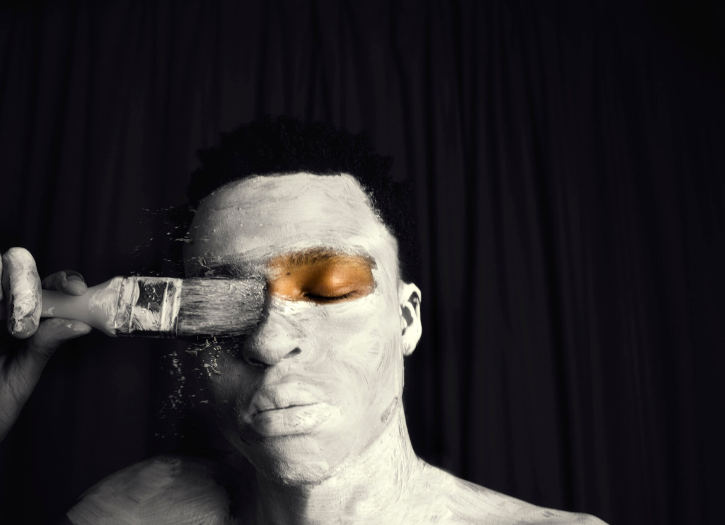The bus ride to the Medical Center was uneventful until I noticed a person with a clear physical disability in the front seat. They sat with their head down, avoiding eye contact, while the lady next to me shot judgmental stares their way. This moment starkly reminded me of the unseen burdens many carry, facing silent struggles every day.
June is Men’s Mental Health Month, a poignant reminder of the overlooked issue of mental health in Black men. In a 2024 article by Friedman J. and Hansen H. in JAMA Psychiatry, it was revealed that Black individuals faced higher death rates from suicide, alcohol, and drug overdose in 2022 compared to their white counterparts. Shockingly, suicide rates among Black men aged 15 to 24 are four times higher than the national average, marking it as the third leading cause of death for this demographic. This alarming trend is further compounded by the fact that from 2010 to 2020, Black people saw the largest increase in suicide rates among any ethnic group, highlighting the urgent need for intervention.
The Office of Minority Health at the US Department of Health and Human Services reported in 2018 that the suicide rate for Black men was four times greater than that for African-American women. Disturbingly, there was a 73% increase in the suicide rate among Black boys, indicating a worrying trend of rising mental health issues among young Black males. Trusting therapists is challenging for Black men due to the lack of diversity and understanding in mental health services. Moreover, traditional masculine norms pressure Black men to appear tough and avoid vulnerability, leading to internal conflicts and mental health issues like depression, anxiety, and frustration.
Joseph Lamour aptly captured this struggle, stating, “We live in a world that is not receptive to me or any of us having a full range of emotions.” This statement underscores the societal barriers Black men face in seeking help for their mental health.
In another enlightening article, Maia Niguel Hoskins provides five practical tips for Black men seeking mental healthcare:
1. Recognize that prioritizing mental health is as crucial as physical wellness, enabling them to be more present for their loved ones.
2. Understand that treatment is entirely confidential, with counselors ethically bound to maintain privacy.
3. Choose a mental health professional they feel comfortable and safe with.
4. Dispel the stigma around seeking help, as counseling and therapy are for everyone.
5. Emphasize that seeking help is a sign of strength, not weakness.
As a community, we must continue to advocate for and support Black men in their mental health journeys. Martin Luther King Jr.’s words resonate deeply, “If you can’t fly then run, if you can’t run then walk, if you can’t walk then crawl, but by all means, keep moving.” Let’s break the silence, shatter the stigma, and ensure that Black men receive the mental health support they deserve.
Black men’s mental health is a critical issue that requires immediate attention. The challenges they face are multifaceted, stemming from societal expectations, historical trauma, and systemic inequalities. Despite these obstacles, Black men are resilient and have the strength to overcome these challenges with the right support.
One of the major barriers to seeking help for Black men is the stigma surrounding mental health in the Black community. Many Black men are taught from a young age to be strong and resilient, which can make it difficult for them to admit when they are struggling. Additionally, there is a lack of awareness and education about mental health in the Black community, which can lead to misunderstandings and misconceptions.
Another major barrier to seeking help for Black men is the lack of access to mental health care. Many Black men live in underserved communities where mental health services are scarce or unaffordable. This lack of access can make it difficult for Black men to get the help they need.
Despite these challenges, there are steps that can be taken to improve mental health outcomes for Black men. One of the most important steps is to increase awareness and education about mental health in the Black community. By destigmatizing mental illness and promoting the importance of seeking help, we can encourage more Black men to get the help they need.
Additionally, increasing access to mental health care is critical. This can be done by expanding mental health services in underserved communities and making services more affordable and accessible. By addressing these barriers, we can help ensure that Black men receive the mental health care they need to thrive.
In conclusion, Black men’s mental health is a critical issue that requires immediate attention. By increasing awareness, promoting access to care, and addressing stigma, we can help improve mental health outcomes for Black men. Together, we can break the silence and ensure that Black men receive the support they need to live healthy, fulfilling lives.
Photo Credit: Courtesy of Tsoku Maela







Great Article daughter, thank you for recognizing, and bringing attention to this problem.